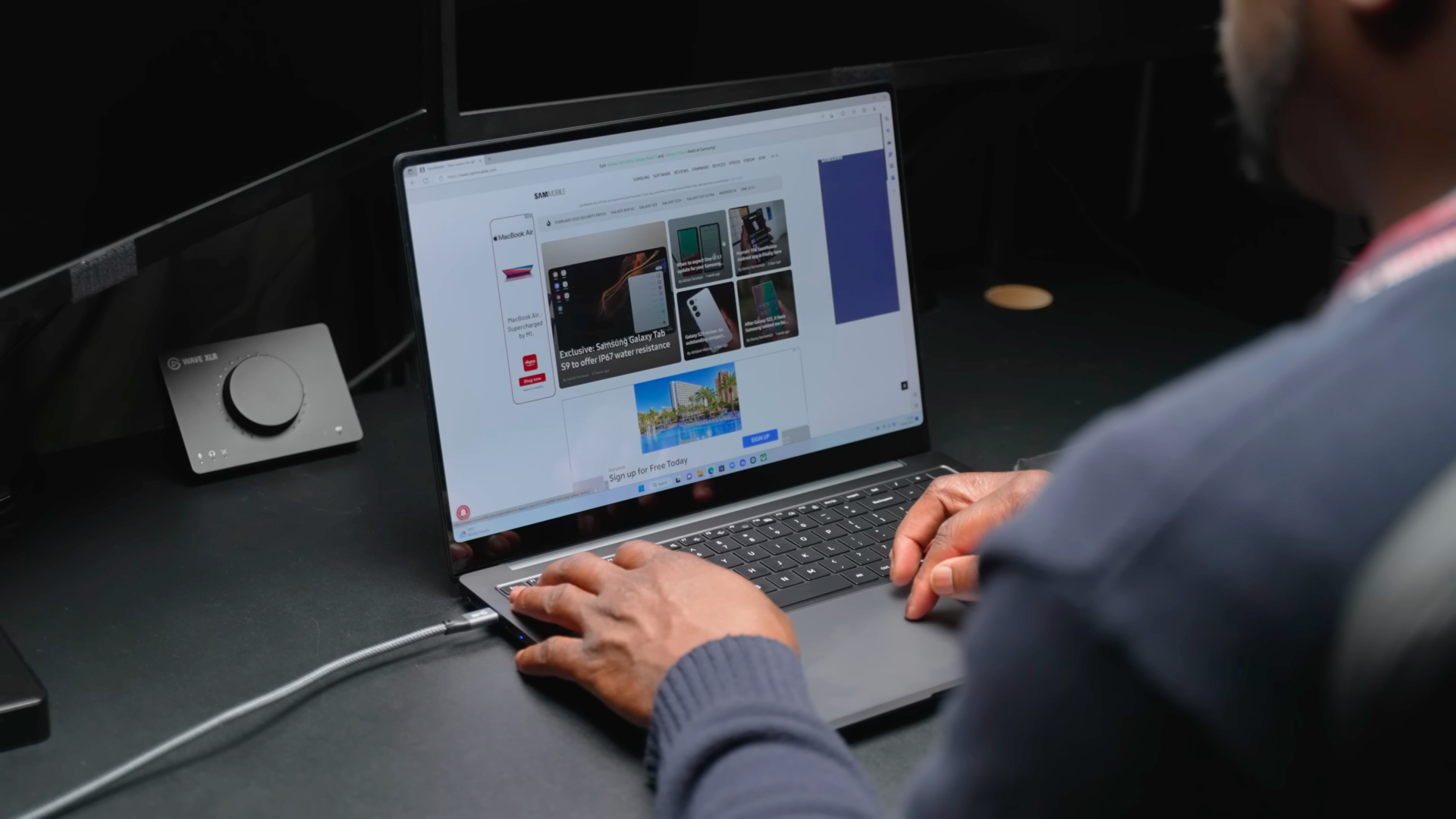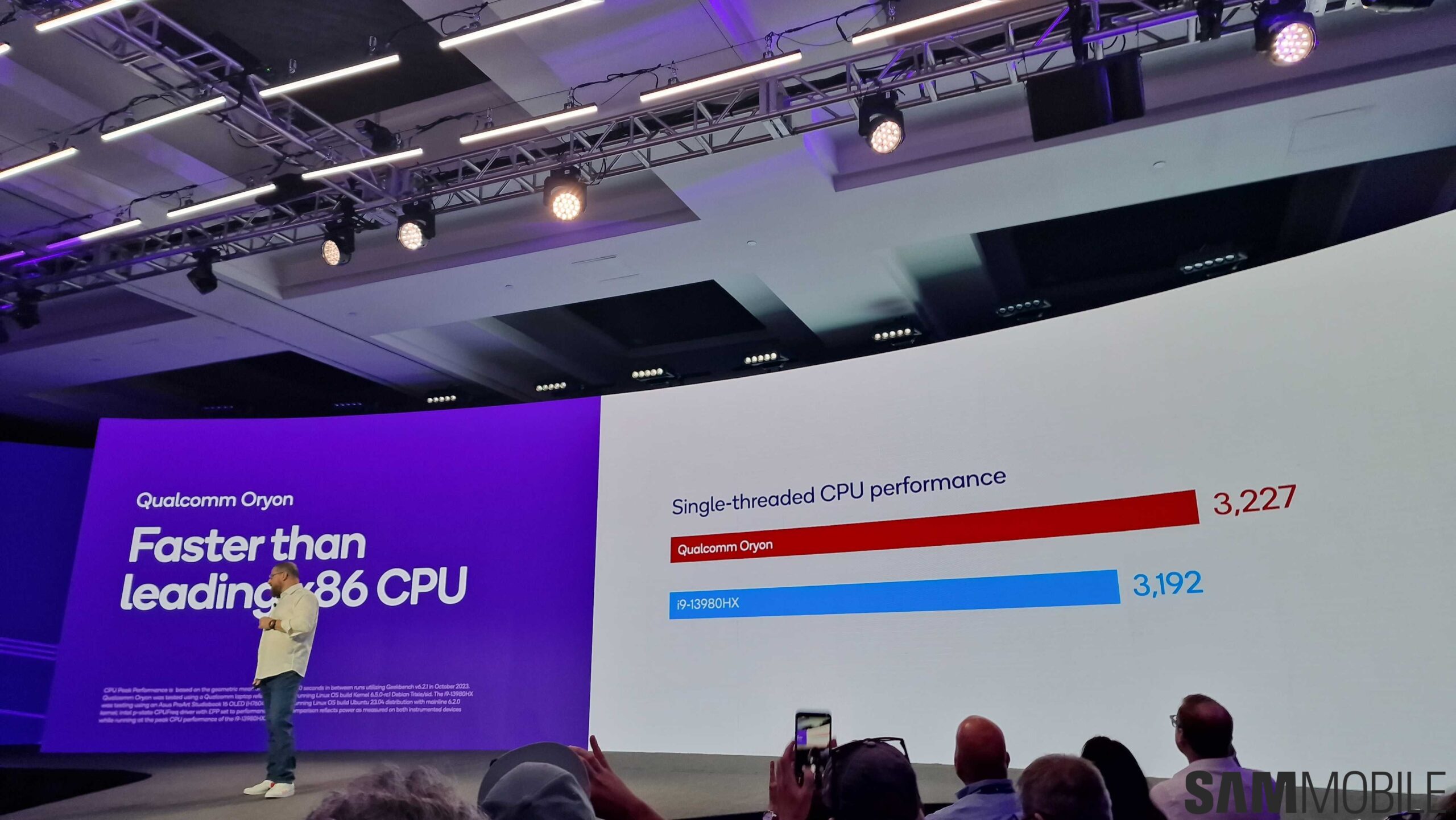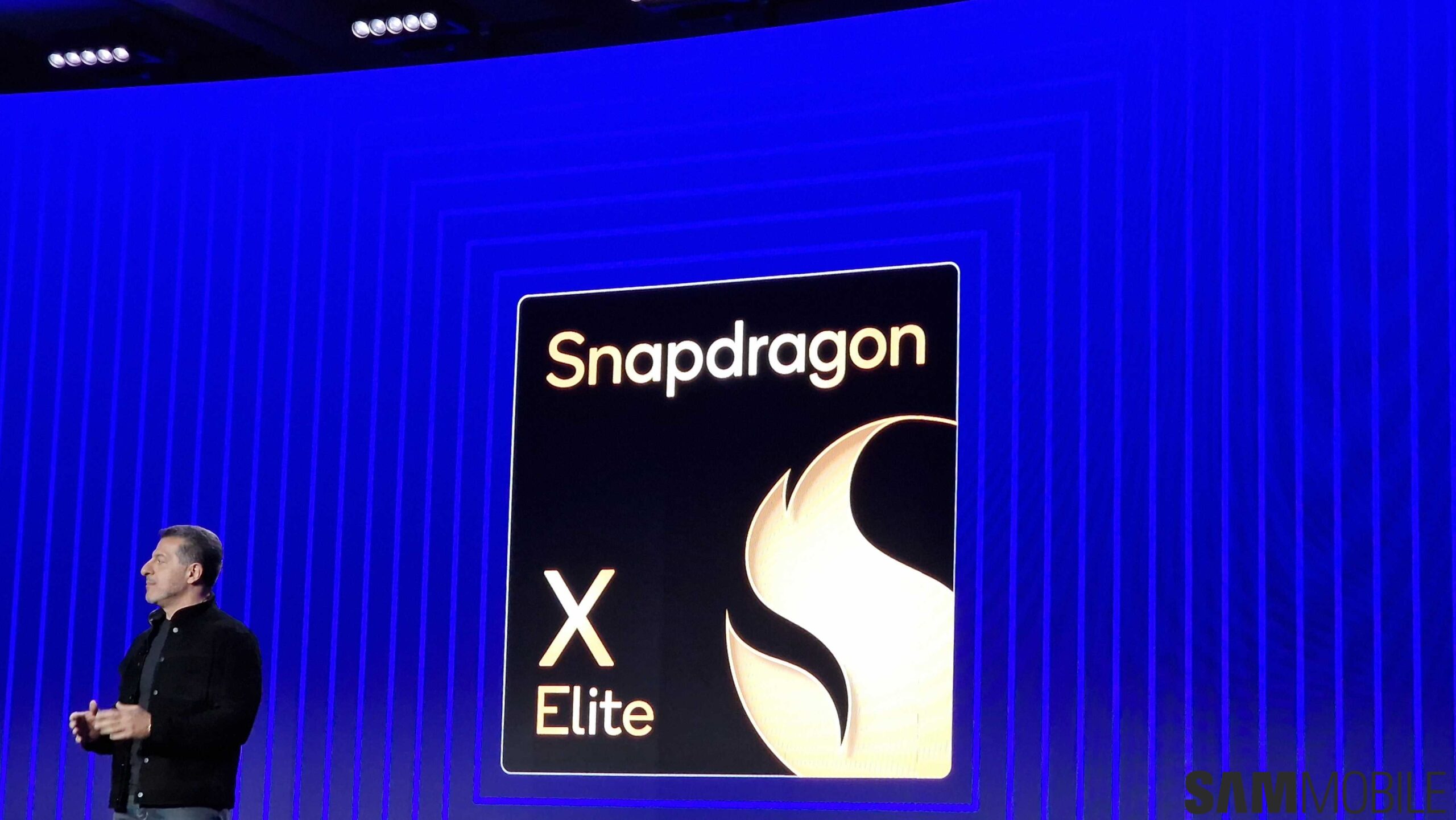Qualcomm unveiled the new Snapdragon X Elite chipset for Windows PCs today at the Snapdragon Summit 2023. The platform boasts some impressive performance and efficiency gains over the competition in addition to providing enhanced on-device AI functionality. The company has confirmed that new PCs powered by the Snapdragon X Elite will arrive in mid-2024.
That's likely when we'd get a new Galaxy Book 4 Ultra from Samsung. While previous iterations have utilized Intel's x86 processors, there's a case to be made that Samsung's top-of-the-line notebook stands to benefit by switching to Qualcomm's ARM-based solution, in more ways than one.
Unveiled earlier this year, the Galaxy Book 3 Ultra was the first “Ultra” branded laptop from Samsung, a moniker that's previously been reserved for its top-tier smartphones and tablets. It features an Intel Core i9-13900H chipset along with a 16-inch 3K OLED display and other top-tier specs that make it a premium notebook.
Performance is the core area of concern on a device of this calibre. The figures that Qualcomm has provided today for the Snapdragon X Elite beat the Intel i9-13980HX, a chipset of an even higher grade than the one Samsung has used for the Galaxy Book 3 Ultra.
Geekbench scores shared by Qualcomm show that the Oryon CPU of the Snapdragon X ELite hits a score of 3,227 in single-threaded CPU performance, an area where Intel chipsets have historically been strong, compared to the i9-13980HX's score of 3,192. It does that while consuming 70% less power at peak performance and also providing over 40% more memory bandwidth.
It's true that ARM-based PCs had a rocky start. Windows wasn't ready when the first ARM laptops hit the market. They could only run 32-bit apps under emulation which meant that not only did users get fewer apps, the performance hit was also significant. Microsoft has a big role to play in the success of ARM-based PCs and it has stepped up with Windows 11. 64-bit apps can now be run under emulation with no noticeable performance degradation. Windows is finally ready for the ARM revolution, and this was underscored by the comments of Microsoft CEO Satya Nadella that were shown during the Snapdragon Summit today.
Sheer performance and power efficiency are far from the only reasons why the Snapdragon X Elite platform would be a good match for the Galaxy Book 4 Ultra. It will also improve cross-device experiences between other Samsung devices that are also powered by Snapdragon chipsets, such as its entire Galaxy Z lineup of foldable phones. Snapdragon Seamless, also announced during the summit today, will elevate the Android and Windows cross-device user experience to levels previously experienced only by those in the Apple ecosystem. The latest Snapdragon Sound improvements, including Qualcomm's revolutionary XPAN technology that makes it possible to deliver lossless-quality audio to earbuds over Wi-Fi would figure in such an arrangement as well.
This wouldn't be the first time that Samsung uses an ARM-based Qualcomm chipset for its notebooks. The Galaxy Book 2 Pro 360 is powered by the Snapdragon 8cx Gen 3, the predecessor to the Snapdragon X Elite, though nowhere near as powerful. It's also not like Samsung has never considered using ARM-based chipsets for its notebooks. We first heard back in 2021 that Samsung could repurpose the Exynos 2200 for a Windows on ARM laptop. Latest rumors suggest that Samsung might once again be developing an ARM-based Exynos chipset for Windows-powered notebooks.
With the Snapdragon X Elite emerging as an x86 alternative and Samsung's own reported ambitions in this space, it could get the balling rolling in this direction by shifting next year's top-of-the-line notebook to Qualcomm's latest platform. Whether or not that ends up happening remains to be seen, as current rumors suggest we may see Intel's new Meteor Lake chips being used for the Galaxy Book 4 lineup due next year.
It's pertinent to note here that while Qualcomm shared the names of some OEMs who will be launching their Snapdragon X Elite-based notebooks by mid-2024, Samsung wasn't on that list. However, Samsung is never on the list even for its Snapdragon mobile chipsets, likely because of the unique relationship the two companies have. For example, Qualcomm made a special Snapdragon 8 Gen 2 for Galaxy this year, a slightly overclocked version of the Snapdragon 8 Gen 2 that was announced separately when Samsung unveiled the Galaxy S23 series in February.
Qualcomm will likely do that again with the Snapdragon 8 Gen 3 for Galaxy next year, as the Galaxy S24 series is expected to be available with Snapdragon in some markets, even as the Exynos makes a return with the upcoming flagship lineup. Interesting things are happening in this space and we'll be closely watching Samsung's steps.








